【Visual Studio】无法打开包括文件: “dirent.h”: No such file or directory
VS2017/2019 无法打开包括文件: “dirent.h”: No such file or directory
1 “dirent.h”: No such file or directory
在windows下的VS2017/2019编译器中,发现无法打开“dirent.h”,主要是MSVC并没有实现这个头文件,但是在Linux这个头文件肯定是有的。为此,有人已经写出了WIndows下可用的 “dirent.h”。
这是github地址,也可以从这里下载,你只需要这个头文件即可
https://github.com/tronkko/dirent
2 只需要把下面的代码保存dirent.h即可,直接放在工程目录下。
/** Dirent interface for Microsoft Visual Studio** Copyright (C) 1998-2019 Toni Ronkko* This file is part of dirent. Dirent may be freely distributed* under the MIT license. For all details and documentation, see* https://github.com/tronkko/dirent*/
#ifndef DIRENT_H
#define DIRENT_H/* Hide warnings about unreferenced local functions */
#if defined(__clang__)
# pragma clang diagnostic ignored "-Wunused-function"
#elif defined(_MSC_VER)
# pragma warning(disable:4505)
#elif defined(__GNUC__)
# pragma GCC diagnostic ignored "-Wunused-function"
#endif/** Include windows.h without Windows Sockets 1.1 to prevent conflicts with* Windows Sockets 2.0.*/
#ifndef WIN32_LEAN_AND_MEAN
# define WIN32_LEAN_AND_MEAN
#endif
#include <windows.h>#include <stdio.h>
#include <stdarg.h>
#include <wchar.h>
#include <string.h>
#include <stdlib.h>
#include <malloc.h>
#include <sys/types.h>
#include <sys/stat.h>
#include <errno.h>/* Indicates that d_type field is available in dirent structure */
#define _DIRENT_HAVE_D_TYPE/* Indicates that d_namlen field is available in dirent structure */
#define _DIRENT_HAVE_D_NAMLEN/* Entries missing from MSVC 6.0 */
#if !defined(FILE_ATTRIBUTE_DEVICE)
# define FILE_ATTRIBUTE_DEVICE 0x40
#endif/* File type and permission flags for stat(), general mask */
#if !defined(S_IFMT)
# define S_IFMT _S_IFMT
#endif/* Directory bit */
#if !defined(S_IFDIR)
# define S_IFDIR _S_IFDIR
#endif/* Character device bit */
#if !defined(S_IFCHR)
# define S_IFCHR _S_IFCHR
#endif/* Pipe bit */
#if !defined(S_IFFIFO)
# define S_IFFIFO _S_IFFIFO
#endif/* Regular file bit */
#if !defined(S_IFREG)
# define S_IFREG _S_IFREG
#endif/* Read permission */
#if !defined(S_IREAD)
# define S_IREAD _S_IREAD
#endif/* Write permission */
#if !defined(S_IWRITE)
# define S_IWRITE _S_IWRITE
#endif/* Execute permission */
#if !defined(S_IEXEC)
# define S_IEXEC _S_IEXEC
#endif/* Pipe */
#if !defined(S_IFIFO)
# define S_IFIFO _S_IFIFO
#endif/* Block device */
#if !defined(S_IFBLK)
# define S_IFBLK 0
#endif/* Link */
#if !defined(S_IFLNK)
# define S_IFLNK 0
#endif/* Socket */
#if !defined(S_IFSOCK)
# define S_IFSOCK 0
#endif/* Read user permission */
#if !defined(S_IRUSR)
# define S_IRUSR S_IREAD
#endif/* Write user permission */
#if !defined(S_IWUSR)
# define S_IWUSR S_IWRITE
#endif/* Execute user permission */
#if !defined(S_IXUSR)
# define S_IXUSR 0
#endif/* Read group permission */
#if !defined(S_IRGRP)
# define S_IRGRP 0
#endif/* Write group permission */
#if !defined(S_IWGRP)
# define S_IWGRP 0
#endif/* Execute group permission */
#if !defined(S_IXGRP)
# define S_IXGRP 0
#endif/* Read others permission */
#if !defined(S_IROTH)
# define S_IROTH 0
#endif/* Write others permission */
#if !defined(S_IWOTH)
# define S_IWOTH 0
#endif/* Execute others permission */
#if !defined(S_IXOTH)
# define S_IXOTH 0
#endif/* Maximum length of file name */
#if !defined(PATH_MAX)
# define PATH_MAX MAX_PATH
#endif
#if !defined(FILENAME_MAX)
# define FILENAME_MAX MAX_PATH
#endif
#if !defined(NAME_MAX)
# define NAME_MAX FILENAME_MAX
#endif/* File type flags for d_type */
#define DT_UNKNOWN 0
#define DT_REG S_IFREG
#define DT_DIR S_IFDIR
#define DT_FIFO S_IFIFO
#define DT_SOCK S_IFSOCK
#define DT_CHR S_IFCHR
#define DT_BLK S_IFBLK
#define DT_LNK S_IFLNK/* Macros for converting between st_mode and d_type */
#define IFTODT(mode) ((mode) & S_IFMT)
#define DTTOIF(type) (type)/** File type macros. Note that block devices, sockets and links cannot be* distinguished on Windows and the macros S_ISBLK, S_ISSOCK and S_ISLNK are* only defined for compatibility. These macros should always return false* on Windows.*/
#if !defined(S_ISFIFO)
# define S_ISFIFO(mode) (((mode) & S_IFMT) == S_IFIFO)
#endif
#if !defined(S_ISDIR)
# define S_ISDIR(mode) (((mode) & S_IFMT) == S_IFDIR)
#endif
#if !defined(S_ISREG)
# define S_ISREG(mode) (((mode) & S_IFMT) == S_IFREG)
#endif
#if !defined(S_ISLNK)
# define S_ISLNK(mode) (((mode) & S_IFMT) == S_IFLNK)
#endif
#if !defined(S_ISSOCK)
# define S_ISSOCK(mode) (((mode) & S_IFMT) == S_IFSOCK)
#endif
#if !defined(S_ISCHR)
# define S_ISCHR(mode) (((mode) & S_IFMT) == S_IFCHR)
#endif
#if !defined(S_ISBLK)
# define S_ISBLK(mode) (((mode) & S_IFMT) == S_IFBLK)
#endif/* Return the exact length of the file name without zero terminator */
#define _D_EXACT_NAMLEN(p) ((p)->d_namlen)/* Return the maximum size of a file name */
#define _D_ALLOC_NAMLEN(p) ((PATH_MAX)+1)#ifdef __cplusplus
extern "C" {
#endif/* Wide-character version */
struct _wdirent {/* Always zero */long d_ino;/* File position within stream */long d_off;/* Structure size */unsigned short d_reclen;/* Length of name without \0 */size_t d_namlen;/* File type */int d_type;/* File name */wchar_t d_name[PATH_MAX+1];
};
typedef struct _wdirent _wdirent;struct _WDIR {/* Current directory entry */struct _wdirent ent;/* Private file data */WIN32_FIND_DATAW data;/* True if data is valid */int cached;/* Win32 search handle */HANDLE handle;/* Initial directory name */wchar_t *patt;
};
typedef struct _WDIR _WDIR;/* Multi-byte character version */
struct dirent {/* Always zero */long d_ino;/* File position within stream */long d_off;/* Structure size */unsigned short d_reclen;/* Length of name without \0 */size_t d_namlen;/* File type */int d_type;/* File name */char d_name[PATH_MAX+1];
};
typedef struct dirent dirent;struct DIR {struct dirent ent;struct _WDIR *wdirp;
};
typedef struct DIR DIR;/* Dirent functions */
static DIR *opendir (const char *dirname);
static _WDIR *_wopendir (const wchar_t *dirname);static struct dirent *readdir (DIR *dirp);
static struct _wdirent *_wreaddir (_WDIR *dirp);static int readdir_r(DIR *dirp, struct dirent *entry, struct dirent **result);
static int _wreaddir_r(_WDIR *dirp, struct _wdirent *entry, struct _wdirent **result);static int closedir (DIR *dirp);
static int _wclosedir (_WDIR *dirp);static void rewinddir (DIR* dirp);
static void _wrewinddir (_WDIR* dirp);static int scandir (const char *dirname, struct dirent ***namelist,int (*filter)(const struct dirent*),int (*compare)(const struct dirent**, const struct dirent**));static int alphasort (const struct dirent **a, const struct dirent **b);static int versionsort (const struct dirent **a, const struct dirent **b);/* For compatibility with Symbian */
#define wdirent _wdirent
#define WDIR _WDIR
#define wopendir _wopendir
#define wreaddir _wreaddir
#define wclosedir _wclosedir
#define wrewinddir _wrewinddir/* Internal utility functions */
static WIN32_FIND_DATAW *dirent_first (_WDIR *dirp);
static WIN32_FIND_DATAW *dirent_next (_WDIR *dirp);static int dirent_mbstowcs_s(size_t *pReturnValue,wchar_t *wcstr,size_t sizeInWords,const char *mbstr,size_t count);static int dirent_wcstombs_s(size_t *pReturnValue,char *mbstr,size_t sizeInBytes,const wchar_t *wcstr,size_t count);static void dirent_set_errno (int error);/** Open directory stream DIRNAME for read and return a pointer to the* internal working area that is used to retrieve individual directory* entries.*/
static _WDIR*
_wopendir(const wchar_t *dirname)
{_WDIR *dirp;
#if WINAPI_FAMILY_PARTITION(WINAPI_PARTITION_DESKTOP)/* Desktop */DWORD n;
#else/* WinRT */size_t n;
#endifwchar_t *p;/* Must have directory name */if (dirname == NULL || dirname[0] == '\0') {dirent_set_errno (ENOENT);return NULL;}/* Allocate new _WDIR structure */dirp = (_WDIR*) malloc (sizeof (struct _WDIR));if (!dirp) {return NULL;}/* Reset _WDIR structure */dirp->handle = INVALID_HANDLE_VALUE;dirp->patt = NULL;dirp->cached = 0;/** Compute the length of full path plus zero terminator** Note that on WinRT there's no way to convert relative paths* into absolute paths, so just assume it is an absolute path.*/
#if WINAPI_FAMILY_PARTITION(WINAPI_PARTITION_DESKTOP)/* Desktop */n = GetFullPathNameW (dirname, 0, NULL, NULL);
#else/* WinRT */n = wcslen (dirname);
#endif/* Allocate room for absolute directory name and search pattern */dirp->patt = (wchar_t*) malloc (sizeof (wchar_t) * n + 16);if (dirp->patt == NULL) {goto exit_closedir;}/** Convert relative directory name to an absolute one. This* allows rewinddir() to function correctly even when current* working directory is changed between opendir() and rewinddir().** Note that on WinRT there's no way to convert relative paths* into absolute paths, so just assume it is an absolute path.*/
#if WINAPI_FAMILY_PARTITION(WINAPI_PARTITION_DESKTOP)/* Desktop */n = GetFullPathNameW (dirname, n, dirp->patt, NULL);if (n <= 0) {goto exit_closedir;}
#else/* WinRT */wcsncpy_s (dirp->patt, n+1, dirname, n);
#endif/* Append search pattern \* to the directory name */p = dirp->patt + n;switch (p[-1]) {case '\\':case '/':case ':':/* Directory ends in path separator, e.g. c:\temp\ *//*NOP*/;break;default:/* Directory name doesn't end in path separator */*p++ = '\\';}*p++ = '*';*p = '\0';/* Open directory stream and retrieve the first entry */if (!dirent_first (dirp)) {goto exit_closedir;}/* Success */return dirp;/* Failure */
exit_closedir:_wclosedir (dirp);return NULL;
}/** Read next directory entry.** Returns pointer to static directory entry which may be overwritten by* subsequent calls to _wreaddir().*/
static struct _wdirent*
_wreaddir(_WDIR *dirp)
{struct _wdirent *entry;/** Read directory entry to buffer. We can safely ignore the return value* as entry will be set to NULL in case of error.*/(void) _wreaddir_r (dirp, &dirp->ent, &entry);/* Return pointer to statically allocated directory entry */return entry;
}/** Read next directory entry.** Returns zero on success. If end of directory stream is reached, then sets* result to NULL and returns zero.*/
static int
_wreaddir_r(_WDIR *dirp,struct _wdirent *entry,struct _wdirent **result)
{WIN32_FIND_DATAW *datap;/* Read next directory entry */datap = dirent_next (dirp);if (datap) {size_t n;DWORD attr;/** Copy file name as wide-character string. If the file name is too* long to fit in to the destination buffer, then truncate file name* to PATH_MAX characters and zero-terminate the buffer.*/n = 0;while (n < PATH_MAX && datap->cFileName[n] != 0) {entry->d_name[n] = datap->cFileName[n];n++;}entry->d_name[n] = 0;/* Length of file name excluding zero terminator */entry->d_namlen = n;/* File type */attr = datap->dwFileAttributes;if ((attr & FILE_ATTRIBUTE_DEVICE) != 0) {entry->d_type = DT_CHR;} else if ((attr & FILE_ATTRIBUTE_DIRECTORY) != 0) {entry->d_type = DT_DIR;} else {entry->d_type = DT_REG;}/* Reset dummy fields */entry->d_ino = 0;entry->d_off = 0;entry->d_reclen = sizeof (struct _wdirent);/* Set result address */*result = entry;} else {/* Return NULL to indicate end of directory */*result = NULL;}return /*OK*/0;
}/** Close directory stream opened by opendir() function. This invalidates the* DIR structure as well as any directory entry read previously by* _wreaddir().*/
static int
_wclosedir(_WDIR *dirp)
{int ok;if (dirp) {/* Release search handle */if (dirp->handle != INVALID_HANDLE_VALUE) {FindClose (dirp->handle);}/* Release search pattern */free (dirp->patt);/* Release directory structure */free (dirp);ok = /*success*/0;} else {/* Invalid directory stream */dirent_set_errno (EBADF);ok = /*failure*/-1;}return ok;
}/** Rewind directory stream such that _wreaddir() returns the very first* file name again.*/
static void
_wrewinddir(_WDIR* dirp)
{if (dirp) {/* Release existing search handle */if (dirp->handle != INVALID_HANDLE_VALUE) {FindClose (dirp->handle);}/* Open new search handle */dirent_first (dirp);}
}/* Get first directory entry (internal) */
static WIN32_FIND_DATAW*
dirent_first(_WDIR *dirp)
{WIN32_FIND_DATAW *datap;DWORD error;/* Open directory and retrieve the first entry */dirp->handle = FindFirstFileExW(dirp->patt, FindExInfoStandard, &dirp->data,FindExSearchNameMatch, NULL, 0);if (dirp->handle != INVALID_HANDLE_VALUE) {/* a directory entry is now waiting in memory */datap = &dirp->data;dirp->cached = 1;} else {/* Failed to open directory: no directory entry in memory */dirp->cached = 0;datap = NULL;/* Set error code */error = GetLastError ();switch (error) {case ERROR_ACCESS_DENIED:/* No read access to directory */dirent_set_errno (EACCES);break;case ERROR_DIRECTORY:/* Directory name is invalid */dirent_set_errno (ENOTDIR);break;case ERROR_PATH_NOT_FOUND:default:/* Cannot find the file */dirent_set_errno (ENOENT);}}return datap;
}/** Get next directory entry (internal).** Returns*/
static WIN32_FIND_DATAW*
dirent_next(_WDIR *dirp)
{WIN32_FIND_DATAW *p;/* Get next directory entry */if (dirp->cached != 0) {/* A valid directory entry already in memory */p = &dirp->data;dirp->cached = 0;} else if (dirp->handle != INVALID_HANDLE_VALUE) {/* Get the next directory entry from stream */if (FindNextFileW (dirp->handle, &dirp->data) != FALSE) {/* Got a file */p = &dirp->data;} else {/* The very last entry has been processed or an error occurred */FindClose (dirp->handle);dirp->handle = INVALID_HANDLE_VALUE;p = NULL;}} else {/* End of directory stream reached */p = NULL;}return p;
}/** Open directory stream using plain old C-string.*/
static DIR*
opendir(const char *dirname)
{struct DIR *dirp;/* Must have directory name */if (dirname == NULL || dirname[0] == '\0') {dirent_set_errno (ENOENT);return NULL;}/* Allocate memory for DIR structure */dirp = (DIR*) malloc (sizeof (struct DIR));if (!dirp) {return NULL;}{int error;wchar_t wname[PATH_MAX + 1];size_t n;/* Convert directory name to wide-character string */error = dirent_mbstowcs_s(&n, wname, PATH_MAX + 1, dirname, PATH_MAX + 1);if (error) {/** Cannot convert file name to wide-character string. This* occurs if the string contains invalid multi-byte sequences or* the output buffer is too small to contain the resulting* string.*/goto exit_free;}/* Open directory stream using wide-character name */dirp->wdirp = _wopendir (wname);if (!dirp->wdirp) {goto exit_free;}}/* Success */return dirp;/* Failure */
exit_free:free (dirp);return NULL;
}/** Read next directory entry.*/
static struct dirent*
readdir(DIR *dirp)
{struct dirent *entry;/** Read directory entry to buffer. We can safely ignore the return value* as entry will be set to NULL in case of error.*/(void) readdir_r (dirp, &dirp->ent, &entry);/* Return pointer to statically allocated directory entry */return entry;
}/** Read next directory entry into called-allocated buffer.** Returns zero on success. If the end of directory stream is reached, then* sets result to NULL and returns zero.*/
static int
readdir_r(DIR *dirp,struct dirent *entry,struct dirent **result)
{WIN32_FIND_DATAW *datap;/* Read next directory entry */datap = dirent_next (dirp->wdirp);if (datap) {size_t n;int error;/* Attempt to convert file name to multi-byte string */error = dirent_wcstombs_s(&n, entry->d_name, PATH_MAX + 1, datap->cFileName, PATH_MAX + 1);/** If the file name cannot be represented by a multi-byte string,* then attempt to use old 8+3 file name. This allows traditional* Unix-code to access some file names despite of unicode* characters, although file names may seem unfamiliar to the user.** Be ware that the code below cannot come up with a short file* name unless the file system provides one. At least* VirtualBox shared folders fail to do this.*/if (error && datap->cAlternateFileName[0] != '\0') {error = dirent_wcstombs_s(&n, entry->d_name, PATH_MAX + 1,datap->cAlternateFileName, PATH_MAX + 1);}if (!error) {DWORD attr;/* Length of file name excluding zero terminator */entry->d_namlen = n - 1;/* File attributes */attr = datap->dwFileAttributes;if ((attr & FILE_ATTRIBUTE_DEVICE) != 0) {entry->d_type = DT_CHR;} else if ((attr & FILE_ATTRIBUTE_DIRECTORY) != 0) {entry->d_type = DT_DIR;} else {entry->d_type = DT_REG;}/* Reset dummy fields */entry->d_ino = 0;entry->d_off = 0;entry->d_reclen = sizeof (struct dirent);} else {/** Cannot convert file name to multi-byte string so construct* an erroneous directory entry and return that. Note that* we cannot return NULL as that would stop the processing* of directory entries completely.*/entry->d_name[0] = '?';entry->d_name[1] = '\0';entry->d_namlen = 1;entry->d_type = DT_UNKNOWN;entry->d_ino = 0;entry->d_off = -1;entry->d_reclen = 0;}/* Return pointer to directory entry */*result = entry;} else {/* No more directory entries */*result = NULL;}return /*OK*/0;
}/** Close directory stream.*/
static int
closedir(DIR *dirp)
{int ok;if (dirp) {/* Close wide-character directory stream */ok = _wclosedir (dirp->wdirp);dirp->wdirp = NULL;/* Release multi-byte character version */free (dirp);} else {/* Invalid directory stream */dirent_set_errno (EBADF);ok = /*failure*/-1;}return ok;
}/** Rewind directory stream to beginning.*/
static void
rewinddir(DIR* dirp)
{/* Rewind wide-character string directory stream */_wrewinddir (dirp->wdirp);
}/** Scan directory for entries.*/
static int
scandir(const char *dirname,struct dirent ***namelist,int (*filter)(const struct dirent*),int (*compare)(const struct dirent**, const struct dirent**))
{struct dirent **files = NULL;size_t size = 0;size_t allocated = 0;const size_t init_size = 1;DIR *dir = NULL;struct dirent *entry;struct dirent *tmp = NULL;size_t i;int result = 0;/* Open directory stream */dir = opendir (dirname);if (dir) {/* Read directory entries to memory */while (1) {/* Enlarge pointer table to make room for another pointer */if (size >= allocated) {void *p;size_t num_entries;/* Compute number of entries in the enlarged pointer table */if (size < init_size) {/* Allocate initial pointer table */num_entries = init_size;} else {/* Double the size */num_entries = size * 2;}/* Allocate first pointer table or enlarge existing table */p = realloc (files, sizeof (void*) * num_entries);if (p != NULL) {/* Got the memory */files = (dirent**) p;allocated = num_entries;} else {/* Out of memory */result = -1;break;}}/* Allocate room for temporary directory entry */if (tmp == NULL) {tmp = (struct dirent*) malloc (sizeof (struct dirent));if (tmp == NULL) {/* Cannot allocate temporary directory entry */result = -1;break;}}/* Read directory entry to temporary area */if (readdir_r (dir, tmp, &entry) == /*OK*/0) {/* Did we get an entry? */if (entry != NULL) {int pass;/* Determine whether to include the entry in result */if (filter) {/* Let the filter function decide */pass = filter (tmp);} else {/* No filter function, include everything */pass = 1;}if (pass) {/* Store the temporary entry to pointer table */files[size++] = tmp;tmp = NULL;/* Keep up with the number of files */result++;}} else {/** End of directory stream reached => sort entries and* exit.*/qsort (files, size, sizeof (void*),(int (*) (const void*, const void*)) compare);break;}} else {/* Error reading directory entry */result = /*Error*/ -1;break;}}} else {/* Cannot open directory */result = /*Error*/ -1;}/* Release temporary directory entry */free (tmp);/* Release allocated memory on error */if (result < 0) {for (i = 0; i < size; i++) {free (files[i]);}free (files);files = NULL;}/* Close directory stream */if (dir) {closedir (dir);}/* Pass pointer table to caller */if (namelist) {*namelist = files;}return result;
}/* Alphabetical sorting */
static int
alphasort(const struct dirent **a, const struct dirent **b)
{return strcoll ((*a)->d_name, (*b)->d_name);
}/* Sort versions */
static int
versionsort(const struct dirent **a, const struct dirent **b)
{/* FIXME: implement strverscmp and use that */return alphasort (a, b);
}/* Convert multi-byte string to wide character string */
static int
dirent_mbstowcs_s(size_t *pReturnValue,wchar_t *wcstr,size_t sizeInWords,const char *mbstr,size_t count)
{int error;#if defined(_MSC_VER) && _MSC_VER >= 1400/* Microsoft Visual Studio 2005 or later */error = mbstowcs_s (pReturnValue, wcstr, sizeInWords, mbstr, count);#else/* Older Visual Studio or non-Microsoft compiler */size_t n;/* Convert to wide-character string (or count characters) */n = mbstowcs (wcstr, mbstr, sizeInWords);if (!wcstr || n < count) {/* Zero-terminate output buffer */if (wcstr && sizeInWords) {if (n >= sizeInWords) {n = sizeInWords - 1;}wcstr[n] = 0;}/* Length of resulting multi-byte string WITH zero terminator */if (pReturnValue) {*pReturnValue = n + 1;}/* Success */error = 0;} else {/* Could not convert string */error = 1;}#endifreturn error;
}/* Convert wide-character string to multi-byte string */
static int
dirent_wcstombs_s(size_t *pReturnValue,char *mbstr,size_t sizeInBytes, /* max size of mbstr */const wchar_t *wcstr,size_t count)
{int error;#if defined(_MSC_VER) && _MSC_VER >= 1400/* Microsoft Visual Studio 2005 or later */error = wcstombs_s (pReturnValue, mbstr, sizeInBytes, wcstr, count);#else/* Older Visual Studio or non-Microsoft compiler */size_t n;/* Convert to multi-byte string (or count the number of bytes needed) */n = wcstombs (mbstr, wcstr, sizeInBytes);if (!mbstr || n < count) {/* Zero-terminate output buffer */if (mbstr && sizeInBytes) {if (n >= sizeInBytes) {n = sizeInBytes - 1;}mbstr[n] = '\0';}/* Length of resulting multi-bytes string WITH zero-terminator */if (pReturnValue) {*pReturnValue = n + 1;}/* Success */error = 0;} else {/* Cannot convert string */error = 1;}#endifreturn error;
}/* Set errno variable */
static void
dirent_set_errno(int error)
{
#if defined(_MSC_VER) && _MSC_VER >= 1400/* Microsoft Visual Studio 2005 and later */_set_errno (error);#else/* Non-Microsoft compiler or older Microsoft compiler */errno = error;#endif
}#ifdef __cplusplus
}
#endif
#endif /*DIRENT_H*/相关文章:

【Visual Studio】无法打开包括文件: “dirent.h”: No such file or directory
VS2017/2019 无法打开包括文件: “dirent.h”: No such file or directory 1 “dirent.h”: No such file or directory 在windows下的VS2017/2019编译器中,发现无法打开“dirent.h”,主要是MSVC并没有实现这个头文件,但是在Linux这个头文件…...

asp.net MVC markdown编辑器
在 ASP.NET MVC 中,你可以使用一些第三方 Markdown 编辑器来让用户在网页上方便地编辑和预览 Markdown 内容。这些编辑器通常提供实时预览功能,将 Markdown 文本转换为实时渲染的 HTML,并支持编辑器工具栏来辅助用户编辑。 以下是一些流行的…...

论文浅尝 | 预训练Transformer用于跨领域知识图谱补全
笔记整理:汪俊杰,浙江大学硕士,研究方向为知识图谱 链接:https://arxiv.org/pdf/2303.15682.pdf 动机 传统的直推式(tranductive)或者归纳式(inductive)的知识图谱补全(KGC)模型都关注于域内(in-domain)数据,而比较少关…...
)
算法工程师-机器学习面试题总结(2)
线性回归 线性回归的基本思想是? 线性回归是一种用于建立和预测变量之间线性关系的统计模型。其基本思想是假设自变量(输入)和因变量(输出)之间存在线性关系,通过建立一个线性方程来拟合观测数据ÿ…...

低成本32位单片机空调内风机方案
空调内风机方案主控芯片采用低成本32位单片机MM32SPIN0230,内部集成了具有灵动特色的电机控制功能:高阶4路互补PWM、注入功能的高精度ADC、轨到轨运放、轮询比较器、32位针对霍尔传感器的捕获时钟、以及硬件除法器和DMA等电机算法加速引擎。 该方案具有…...
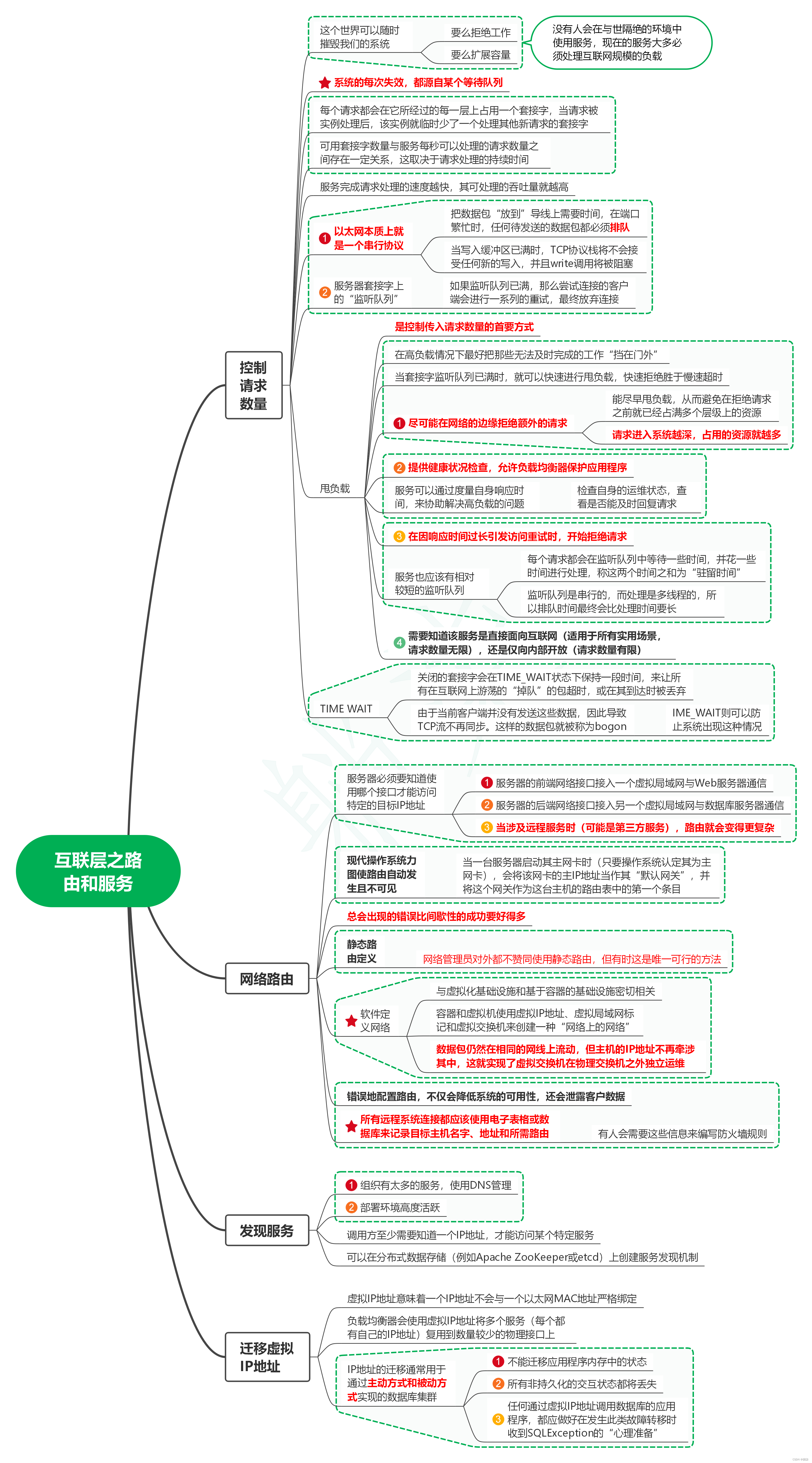
读发布!设计与部署稳定的分布式系统(第2版)笔记25_互联层之路由和服务
1. 控制请求数量 1.1. 这个世界可以随时摧毁我们的系统 1.1.1. 要么拒绝工作 1.1.2. 要么扩展容量 1.1.3. 没有人会在与世隔绝的环境中使用服务,现在的服务大多必须处理互联网规模的负载 1.2. 系统的每次失效,都源自某个等待队列 1.3. 每个请求都会…...
)
AI面试官:LINQ和Lambda表达式(二)
AI面试官:LINQ和Lambda表达式(二) 当面试官面对C#中关于LINQ和Lambda表达式的面试题时,通常会涉及这两个主题的基本概念、用法、实际应用以及与其他相关技术的对比等。以下是一些可能的面试题目,附带简要解答和相关案…...

Mysql原理篇--第二章 索引
文章目录 前言一、mysql的索引是什么?1.1 索引的结构:1.2 b树特性:1.3 b树每个节点的结构:1.4 b树 键值的大小排序:1.4 b树 存储(InnoDB): 二、索引类型2.1 主要的索引类型ÿ…...
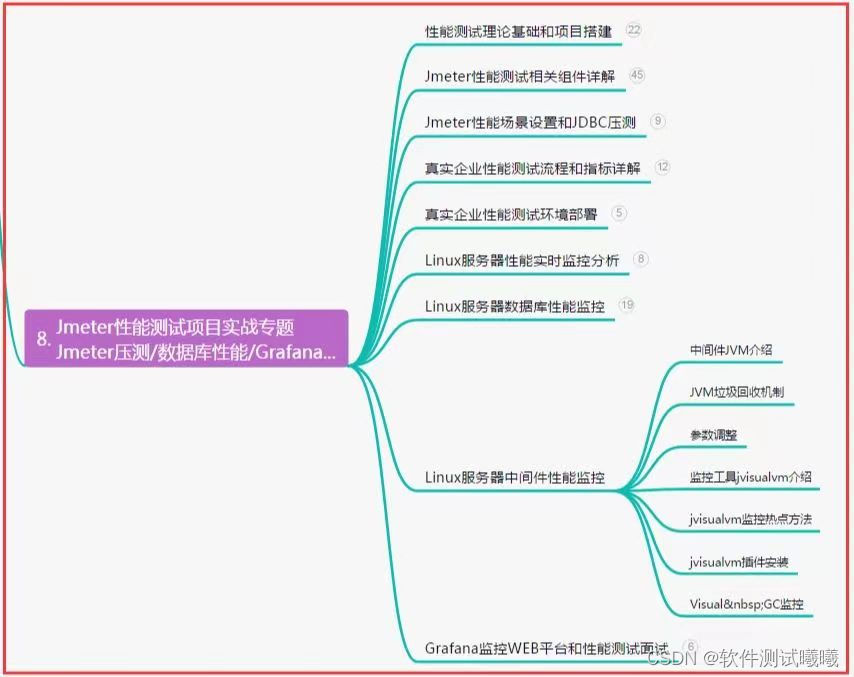
保姆级系列教程-玩转Fiddler抓包教程(1)-HTTP和HTTPS基础知识
1.简介 有的小伙伴或者童鞋们可能会好奇地问,不是讲解和分享抓包工具了怎么这里开始讲解HTTP和HTTPS协议了。这是因为你对HTTP协议越了解,你就能越掌握Fiddler的使用方法,反过来你越使用Fiddler,就越能帮助你了解HTTP协议。 Fid…...

【iOS】单例、通知、代理
1 单例模式 1.1 什么是单例 单例模式在整个工程中,相当于一个全局变量,就是不论在哪里需要用到这个类的实例变量,都可以通过单例方法来取得,而且一旦你创建了一个单例类,不论你在多少个界面中初始化调用了这个单例方…...

从Vue2到Vue3【五】——新的组件(Fragment、Teleport、Suspense)
系列文章目录 内容链接从Vue2到Vue3【零】Vue3简介从Vue2到Vue3【一】Composition API(第一章)从Vue2到Vue3【二】Composition API(第二章)从Vue2到Vue3【三】Composition API(第三章)从Vue2到Vue3【四】C…...

PostgreSQL——sql文件导入
Windows方式: 进入PostgreSQL安装目录的bin,进入cmd 执行命令: psql -d 数据库名 -h localhost -p 5432 -U 用户名 -f 文件目录 SQL Shell: 执行命令: \i 文件目录(Windows下要加引号和双斜线)...

[SQL挖掘机] - 全连接: full join
介绍: 在sql中,join是将多个表中的数据按照一定条件进行关联的操作。全连接(full join)是一种连接类型,它会返回所有满足连接条件的行,同时还包括那些在左表和右表中没有匹配行的数据。 在进行全连接时,会…...

SpringDataJpa 实体类—主键生成策略
主键配置 IdGeneratedValue(strategy GenerationType.IDENTITY)Column(name "cust_id")private Long custId;//主键 Id:表示这个注解表示此属性对应数据表中的主键GeneratedValue(strategy GenerationType.IDENTITY) 此注解表示配置主键的生成策…...

【LeetCode 算法】Parallel Courses III 并行课程 III-拓扑
文章目录 Parallel Courses III 并行课程 III问题描述:分析代码拓扑 Tag Parallel Courses III 并行课程 III 问题描述: 给你一个整数 n ,表示有 n 节课,课程编号从 1 到 n 。同时给你一个二维整数数组 relations ,其…...

进行消息撤回功能的测试时,需要考虑哪些?
进行消息撤回功能的测试时,可以考虑以下测试点: 1. 功能可用性测试:确认消息撤回功能是否能够正常使用,并且在不同的场景下(例如单聊、群聊)是否表现一致。 2. 撤回时限测试:检查消息撤回的时…...
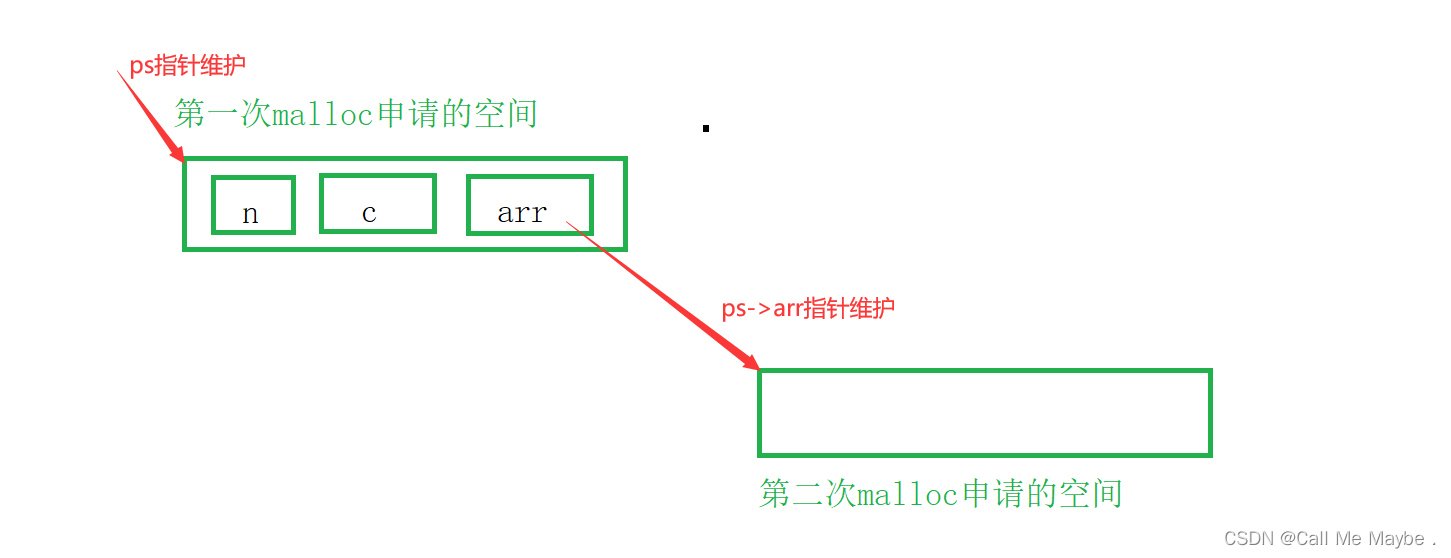
C语言动态内存管理(三)
目录 五、C/C程序的内存开辟1.图解2.关键点 六、柔性数组1.什么是柔性数组2.两种语法形式3.柔性数组的特点4.柔性数组的创建及使用在这个方案中柔性数组的柔性怎么体现出来的? 5.不用柔性数组,实现数组可大可小的思路6.对比 总结 五、C/C程序的内存开辟 1.图解 &a…...
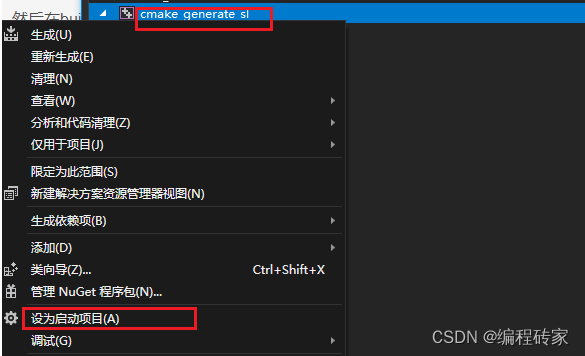
通过cmake工程生成visual studio解决方案
1、前言 visual studio是一个很强大的开发工具,这个工具主要是通过解决方案对我们的源码进行编译等操作。但是我们很多时候拿到的可能并不是一个直接的解决方案,可能是是一个cmake工程,那么这个时候我们就需要通过cmake工程生成解决方案&…...
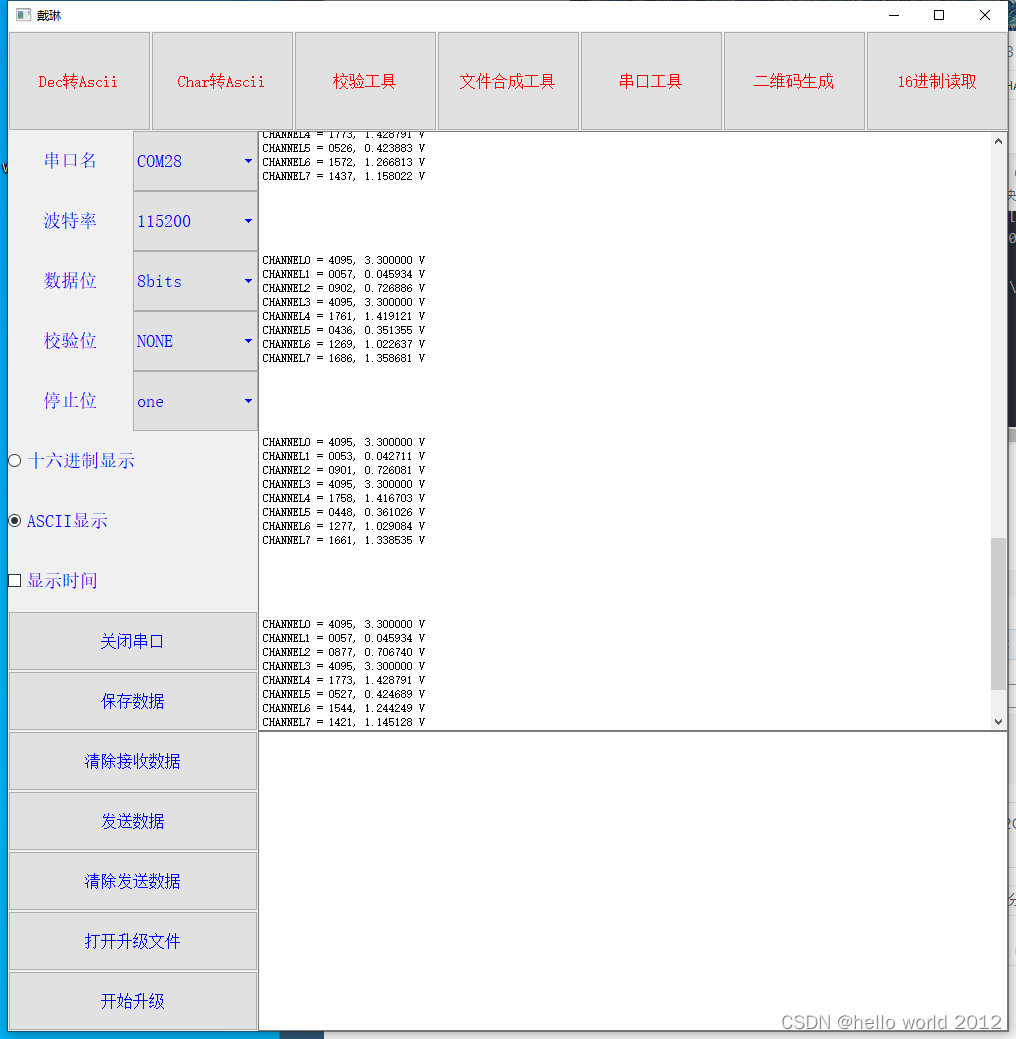
STM32CubeMX配置STM32G031多通道ADC + DMA采集(HAL库开发)
时钟配置HSI主频配置64M 勾选打开8个通道的ADC 使能连续转换模式 添加DMA DMA模式选择循环模式 使能DMA连续请求 采样时间配置160.5 转换次数为8 配置好8次转换的顺序 配置好串口,选择异步模式配置好需要的开发环境并获取代码 修改main.c 串口重定向 #include &…...
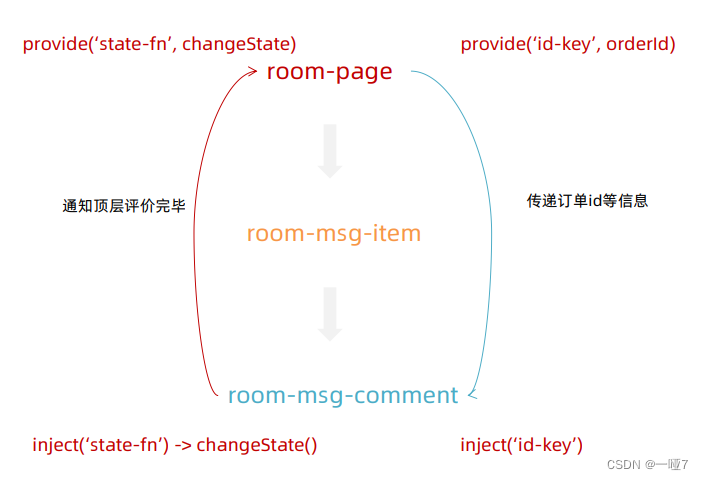
Vue入门项目——WebApi
Vue入门——WebApi vue3项目搭建组合式API响应式APIreactive()ref() 生命周期钩子computed计算属性函数watch监听函数父子通信模板引用组合选项 vue3项目搭建 简单看下Vue3的优势吧 下载安装npm及node.js16.0以上版本(确保安装成功可用如下代码检查版本࿰…...

谷歌浏览器插件
项目中有时候会用到插件 sync-cookie-extension1.0.0:开发环境同步测试 cookie 至 localhost,便于本地请求服务携带 cookie 参考地址:https://juejin.cn/post/7139354571712757767 里面有源码下载下来,加在到扩展即可使用FeHelp…...

19c补丁后oracle属主变化,导致不能识别磁盘组
补丁后服务器重启,数据库再次无法启动 ORA01017: invalid username/password; logon denied Oracle 19c 在打上 19.23 或以上补丁版本后,存在与用户组权限相关的问题。具体表现为,Oracle 实例的运行用户(oracle)和集…...

Swift 协议扩展精进之路:解决 CoreData 托管实体子类的类型不匹配问题(下)
概述 在 Swift 开发语言中,各位秃头小码农们可以充分利用语法本身所带来的便利去劈荆斩棘。我们还可以恣意利用泛型、协议关联类型和协议扩展来进一步简化和优化我们复杂的代码需求。 不过,在涉及到多个子类派生于基类进行多态模拟的场景下,…...

为什么需要建设工程项目管理?工程项目管理有哪些亮点功能?
在建筑行业,项目管理的重要性不言而喻。随着工程规模的扩大、技术复杂度的提升,传统的管理模式已经难以满足现代工程的需求。过去,许多企业依赖手工记录、口头沟通和分散的信息管理,导致效率低下、成本失控、风险频发。例如&#…...

Golang dig框架与GraphQL的完美结合
将 Go 的 Dig 依赖注入框架与 GraphQL 结合使用,可以显著提升应用程序的可维护性、可测试性以及灵活性。 Dig 是一个强大的依赖注入容器,能够帮助开发者更好地管理复杂的依赖关系,而 GraphQL 则是一种用于 API 的查询语言,能够提…...
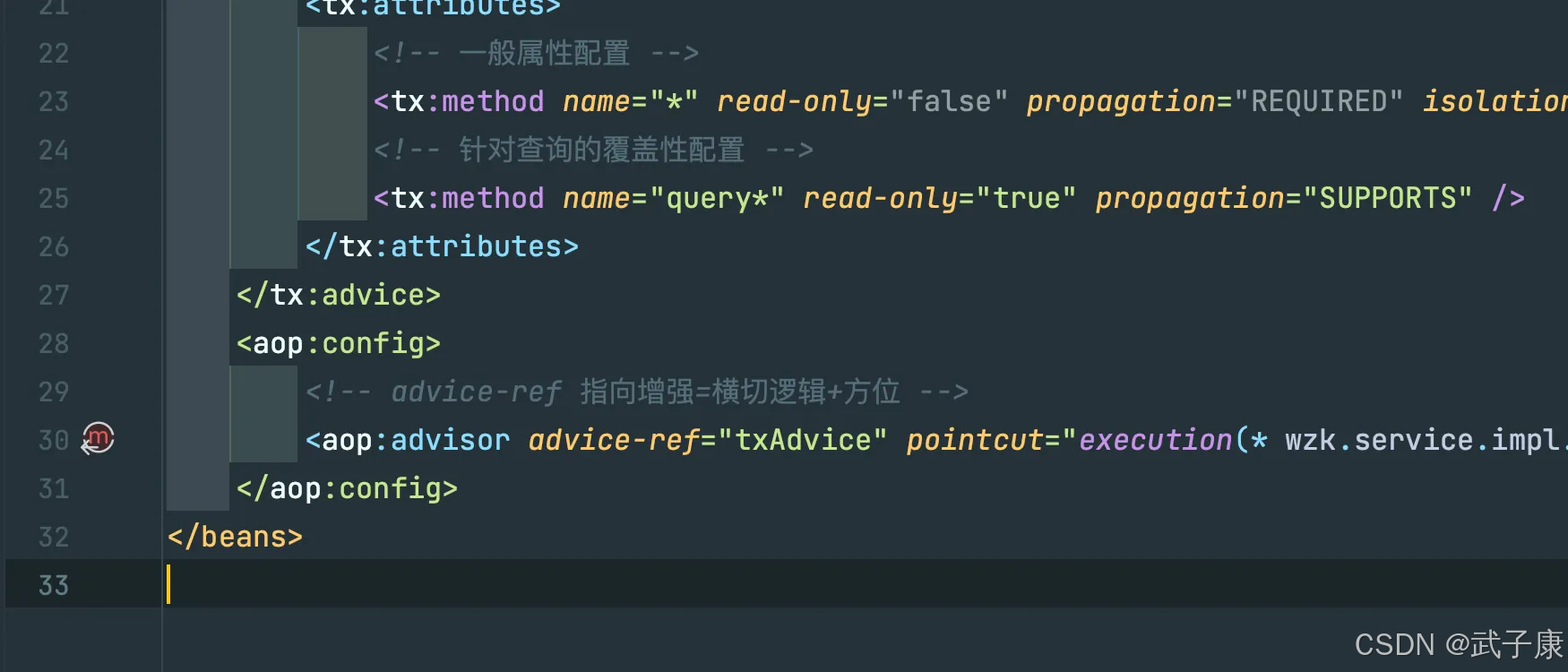
Java-41 深入浅出 Spring - 声明式事务的支持 事务配置 XML模式 XML+注解模式
点一下关注吧!!!非常感谢!!持续更新!!! 🚀 AI篇持续更新中!(长期更新) 目前2025年06月05日更新到: AI炼丹日志-28 - Aud…...

鱼香ros docker配置镜像报错:https://registry-1.docker.io/v2/
使用鱼香ros一件安装docker时的https://registry-1.docker.io/v2/问题 一键安装指令 wget http://fishros.com/install -O fishros && . fishros出现问题:docker pull 失败 网络不同,需要使用镜像源 按照如下步骤操作 sudo vi /etc/docker/dae…...
可以参考以下方法:)
根据万维钢·精英日课6的内容,使用AI(2025)可以参考以下方法:
根据万维钢精英日课6的内容,使用AI(2025)可以参考以下方法: 四个洞见 模型已经比人聪明:以ChatGPT o3为代表的AI非常强大,能运用高级理论解释道理、引用最新学术论文,生成对顶尖科学家都有用的…...

AspectJ 在 Android 中的完整使用指南
一、环境配置(Gradle 7.0 适配) 1. 项目级 build.gradle // 注意:沪江插件已停更,推荐官方兼容方案 buildscript {dependencies {classpath org.aspectj:aspectjtools:1.9.9.1 // AspectJ 工具} } 2. 模块级 build.gradle plu…...

Maven 概述、安装、配置、仓库、私服详解
目录 1、Maven 概述 1.1 Maven 的定义 1.2 Maven 解决的问题 1.3 Maven 的核心特性与优势 2、Maven 安装 2.1 下载 Maven 2.2 安装配置 Maven 2.3 测试安装 2.4 修改 Maven 本地仓库的默认路径 3、Maven 配置 3.1 配置本地仓库 3.2 配置 JDK 3.3 IDEA 配置本地 Ma…...
